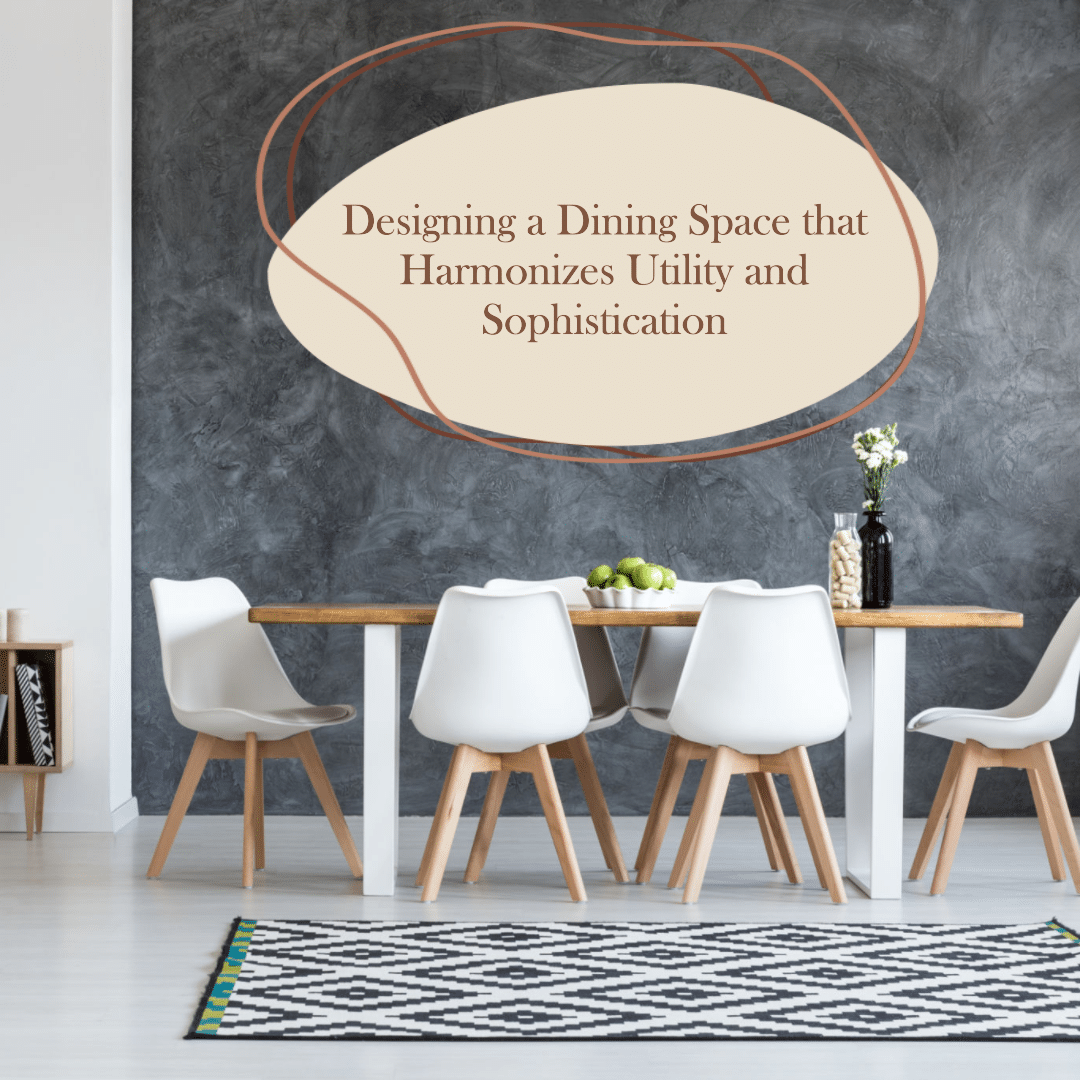
14
Oct
Designing a Dining Space that Harmonizes Utility and Sophistication
- Significance of Dining Area: Explore the role of dining areas as a nexus of family gatherings, celebrations, and daily meals.
- Purpose of Design: Establish how a well-designed dining area can elevate experiences, from casual meals to festive occasions.
Key Elements of a Stunning Dining Area:
- Table Settings:
- Dive into selecting tables based on shape, size, and material.
- Explore how to decorate tables with centerpieces, tablecloths, and accessories.
- Chairs & Seating:
- Discuss the ergonomics and aesthetics of various seating options.
- Present ideas for combining style and comfort, considering different materials and designs.
- Lighting:
- Highlight the role of lighting in creating ambiance: from chandeliers to pendant lights.
- Explore the interplay of natural and artificial light to accentuate dining experiences.
- Color and Texture:
- Discuss the impact of color schemes on the dining area’s ambiance.
- Explore how textures (in upholstery, tableware, etc.) can add depth and interest.
- Wall Decor and Art:
- Present options for adorning walls with artworks, mirrors, or textures to enhance visual appeal.
- Explore how wall treatments can be utilized to define the dining space within open-plan living areas.
Style Diversities in Dining Area Design:
- Classic Elegance: Explore designs that feature timeless elements, antique furniture, and sophisticated decor.
- Modern Minimalism: Delve into clean lines, simple color palettes, and uncluttered spaces that define modern minimalist design.
- Rustic Charm: Dive into natural materials, vintage pieces, and a cozy aesthetic that characterizes rustic dining spaces.
- Eclectic Vibrancy: Explore how to blend various styles, colors, and pieces to create a unique and vibrant eclectic dining area.
Spatial Considerations:
- Small Spaces: Provide tips for designing functional and visually pleasing dining areas in limited space, utilizing multi-functional furniture and clever layouts.
- Open-Plan Dining: Discuss integrating dining areas within larger, open-plan living spaces, ensuring clear definition and cohesive design.
Incorporating Technology:
- Smart Lighting: Explore options for adjustable lighting that can alter the ambiance according to different occasions.
- High-Tech Appliances: Discuss how integrating technology (like smart wine coolers or IoT devices) can enhance convenience in the dining area.
The Psychology of Dining Area Design:
- Discuss how different design elements can influence mood and social interaction during meals.
- Explore how to curate a design that fosters positive connections and enjoyable dining experiences.
Sustainable and Eco-Friendly Design:
- Explore how to select sustainable materials and decor items.
- Provide insights on creating an eco-friendly dining space without compromising style or functionality.
Cultural and Traditional Influences:
- Discuss how various cultural and traditional influences can be woven into dining area design.
- Explore various global dining customs and how they impact design considerations.
